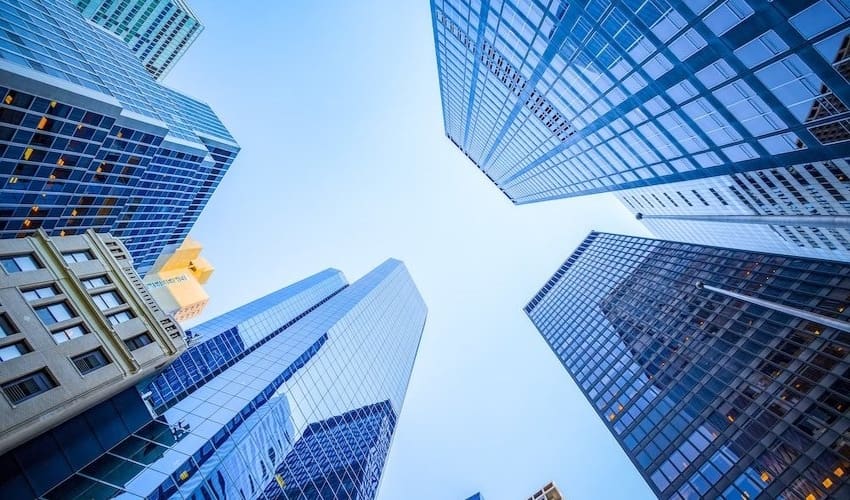GCC countries like Saudi Arabia (KSA), Kuwait, United Arab Emirates (UAE), Qatar, Bahrain, and Oman – are adjusting to new economic realities. Oil had fallen by almost half since June 2014, when it traded at $115 a barrel. While this destroys an economy that has become black gold, it also creates opportunities. Countries work together to implement broad economic reforms to build a diversified economy that attracts foreign companies and investment.
Oil dependence varies across regions. For example, in Kuwait, 63% of gross domestic product (GDP) is generated directly from oil exports, while in the United Arab Emirates, only 34% – reflecting the UAE’s progress in diversifying its economy[i].
Like other GCC countries, the diversification of the UAE has shifted focus from the public sector to the private sector.
Best places to Start Business in Middle East Region
It should offer many exciting ways to do business, but as the latest World Bank report on the Ease of Doing Business shows, it can often be tricky.
The region is home to a vast economic environment, from ambitious Gulf cities like Dubai and Doha aiming to build world-class infrastructure to poverty in war-torn countries like Syria and Yemen.
Oman
Oman relies heavily on oil and gas, generating between 68% and 85% of government revenue depending on fluctuations in raw material prices. As of January 2018, the sultanate has sufficient foreign assets to maintain a fixed exchange rate of its currency. Oman uses advanced oil exploration techniques to increase production, but at the same time, has development plans focused on diversification, industrialization, and privatization. Key components of the government’s diversification strategy are tourism, shipping and logistics, mining, manufacturing, and aquaculture.
UAE
The UK has an open economy with a high per capita income and a sizeable annual trade surplus. Economic diversification efforts have reduced the GDP of the oil and gas sector by up to 30%. Since the discovery of oil in England nearly 60 years ago, the country has transformed massively from a small desert empire to a modern nation. Business Setup in UAE can be the most profitable business setup option you can have. Abu dhabi and Dubai are the MENA regions for business setup.
Saudi Arabia
Saudi Arabia has an oil economy with solid-state control over critical economic activities. With more than 16% of the world’s proven oil reserves, it is the largest oil exporter and plays a significant role in OPEC. Saudi Arabia is promoting private sector growth to diversify its economy, employ more Saudis, and engage its youth. Historically, the kingdom has focused its diversification efforts on the power generation, telecommunications, natural gas exploration, and petrochemical sectors. Recently, the government has introduced reforms such as visa facilitation and the improvement of tourism infrastructure.
Morroco
Morocco has taken advantage of its proximity to Europe and relatively low labor costs to build a diverse, open, and market-oriented economy. Strategies for industrial development and infrastructure upgrades – best exemplified by the new port and free trade area near Tangier – enhance Morocco’s competitiveness. In late 2014, the state removed subsidies for gasoline, diesel, and heating oil, drastically reducing the costs of the state budget and current account. Morocco also plans to expand its renewable energy capacity to make more than 50% of its installed power generation capacity renewable by 2030.
Bahrain
Despite past government efforts to diversify the economy, oil still accounts for 85% of Bahrain’s budget revenue. Another primary industry is aluminum production – Bahrain’s second-largest export after oil and gas – finance and construction.
Egypt
Egypt has undergone drastic changes, with revolutions and social movements that overthrew the regime and caused great unrest and discontent. Abdel Fattah al-Sisi’s recent election has promoted him to the president and has slightly stoked tensions in the capital. Cairo is today the largest city in Egypt, Africa, and the entire Arab world, and its cultural significance is immeasurable for both past and present civilizations. It is also the economic center of Egypt today. Due to its economic importance and artistic reputation, Cairo is one of the best places to do business in the Middle East, along with several other obvious reasons.
Jeddah
Jeddah’s strategic and economic importance to KSA is reflected in the increased investment by the Saudi government in the city to develop new ports and make the city a more assertive regional mall that can compete with the increasingly popular Arabian Gulf trade. See it in the current construction of Kingdom Tower, which will be the most significant building globally when completed, and Kingdom City, a construction project for its economic and social development. Like the Concrete Zone and LEED Workshops, many other similar events focus on “greener” efforts greener.
Aqaba
As the only port in the country of Jordan, the city of Aqaba offers a unique background and offers unique opportunities for companies operating here. Aqaba is present in a special economic zone, which means it has set goals to promote Jordan’s market share and Jordan’s economic development. As a result, Aqaba’s economy grew slightly above the national average for the year. Since this is the only port in Jordan, basically all exports go through this city.
However, Aqaba is not located in a qualifying industrial zone and does not benefit from trade relations between the US and Israel. Despite its proximity to Israel via the Gulf of Aqaba, Jordan’s only access to the sea. Aqaba is a duty-free zone with a fixed tax exemption of 5% of all net income.
Conclusion
If you are looking to start a business in m, there are a few things you need to know before proceeding. Firstly, due to property laws in the United Arab Emirates, foreigners cannot have a controlling stake in a company in Dubai and must have a partner from the emirate who owns at least a 51% stake.
Notable exceptions to this ownership rule are Dubai Internet City and Dubai Media City, where non-citizens can own 100% of the company. Second, the process of starting a business can be daunting for someone who doesn’t know how to go through the complex business registration process, so it’s best to have someone to guide you through the process. Third, Dubai is tax-free, but there is no free trade agreement with the United States, imposing tariffs on trade between the two countries.

Mr. Mohammed sultan Zubair joined MSZ Corporate services provider as managing Director, bringing nearly 13 years of industry leadership experience.
He began his corporate services and business consulting in the year 2008 working up his way in the organization business setup in dubai consultant to an entrepreneur and Director of the company.















Leave a Reply